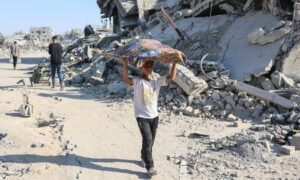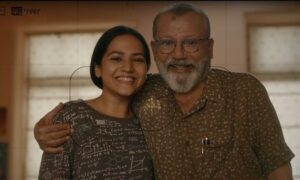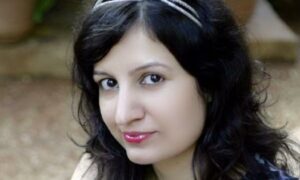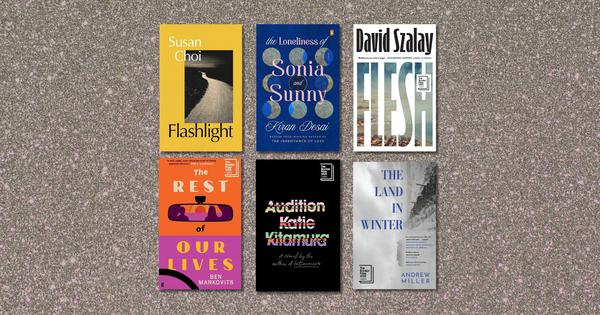
The 2025 Booker Prize shortlist was announced on Tuesday, September 23. Kiran Desai’s novel, The Loneliness of Sonia and Sunny, her first novel in 19 years since her Booker Prize-winning novel, The Inheritance of Loss, is on the shortlist.
The other novels on the shortlist are Flashlight by Susan Choi, Audition by Katie Kitamura, The Rest of Our Lives by Ben Markovits, The Land in Winter by Andrew Miller, and Flesh by David Szalay.
The winning book will be announced on November 10 in London, and the winning author will receive £50,000.
Roddy Doyle, Chair of the Booker Prize 2025 judges, said, ‘The six [shortlisted books] have two big things in common. Their authors are in total command of their own store of English, their own rhythm, their own expertise; they have each crafted a novel that no one else could have written. And all of the books, in six different and very fresh ways, find their stories in the examination of the individual trying to live with – to love, to seek attention from, to cope with, to understand, to keep at bay, to tolerate, to escape from – other people. In other words, they are all brilliantly written and they are all brilliantly human.”
Three women and three men authors are on this year’s shortlist. They are Indian (Kiran Desai), British (Andrew Miller), Hungarian-British (David Szalay) and American (Susan Choi, Katie Kitamura and Ben Markovits). Should Kiran Desai win, India, for the first time, will complete a clean sweep of the 2025 Booker Prizes, after author Banu Mustaq and translator Deepa Bhasthi won the International Booker Prize for their short-story collection Heart Lamp earlier this year.
Three of the authors – Susan Choi, Katie Kitamura, Ben Markovits – are shortlisted for the Booker for the first time. Andrew Miller (Oxygen, 2001) and David Szalay (All That Man Is, 2016) are both making their second appearance. Kiran Desai won the prize in 2006 for her book, The Inheritance of Loss, and her mother, Anita Desai, was shortlisted for the Booker three times. Should Kiran Desai win again in 2025, Kiran Desai would become only the fifth author to win the prize twice, and would join a distinguished list of double winners comprising Margaret Atwood, Peter Carey, JM Coetzee and Hilary Mantel.
Here are the opening lines of the six shortlisted novels:
The Loneliness of Sonia and Sunny, Kiran Desai
The sun was submerged deep in the wintry murk of dawn. Ba, Dadaji and their daughter Mina Foi wrapped their shawls closely about themselves when they emerged upon the veranda to sip their tea and to decide, through a vigorous process of elimination, their meals for the rest of the day. Orders must be given to the cook at breakfast so that he might go directly to market. It was Mina’s fifty-fifth birthday, the first of December in the year 1998, and the mutton for her birthday kebabs had been marinating overnight in the kitchen.
“Rice? Roti?” Ba was growing deaf, but she knew she must raise her voice over the morning traffic thundering past the front gate, and the cawing of hundreds of crows, their racket and the sun’s struggle so closely linked, it was as if each morning the crows gave birth to the light. “Pilau? Paratha?” she suggested.
Perched above them, at the entrance portico, sat a plaster bust of a portly gentleman in a cravat, perhaps inspired by a drawing made by the bungalow’s original owner who had toured Europe, sketchbook in hand, in the same manner he’d observed foreigners doing in India. And perhaps it was the fault of the artist’s rendering, or the dissonant surroundings of Allahabad, or a splattering of bird droppings – the bust resembled less a dignified nobleman than a foolish snob with an interest in the sky overhead that had not turned vivid or blue for a quarter of a century. Not since the national highway had been widened to accommodate the lorries that trawled cabbages, cement, goats, wheat –- and if one was to believe the newspapers or the gossip – prostitution and venereal disease.
Flashlight, Susan Choi
Louisa and her father are making their way down the breakwater, each careful step on the heaved granite blocks one step farther from shore. Her mother is not even on the shore, for example seated smiling on the sand. Her mother is shut inside the small almost-waterfront house they are renting, most likely in bed. All summer Louisa has played in the waves by herself because her mother isn’t well and her father is unvaryingly dressed in a jacket and slacks. But tonight he has finally agreed to walk the breakwater with her. She has asked every day since they first arrived. Spray from
the waves sometimes lands on the rocks and so he has carefully rolled up the cuffs of his slacks. He still wears his hard polished shoes. In one hand he holds a flashlight which is not necessary, in the other hand he holds Louisa’s hand which is also not necessary. She tolerates this out of kindness.
“One thing I will always owe your mother is she taught you to swim. Because swimming is important to know how to do, for your safety. But when she gave you lessons, I thought it was too dangerous. I was very unfair.”
“I hate swimming.”
They both know the opposite is true. Perhaps her father recognises her comment for what it partly is, a declaration of loyalty to him, as well as for what it mostly is, a declaration by a ten-year-old child who is contentious by reflex.
Far over the water, far beyond where the breakwater joins with a thin spit of sand, the sunset has lost all its warmth and is only a paleness against the horizon. They’ll turn back
soon.
“I never learned to swim,” her father reveals.
“I don’t believe you,” she scoffs. Everybody can swim. Though it’s true he always makes a big deal when she wants to get in or even get near the water.
“It’s true. I grew up a poor boy. I had no YMCA.”
“The YMCA is disgusting. I hate going there.”
“Someday, you’ll feel thankful to your mother. But I want you to act thankful now.”
These are the last words he ever says to her.
(Or are they the last words that she can remember? Did he say something more? There is no one to ask.)
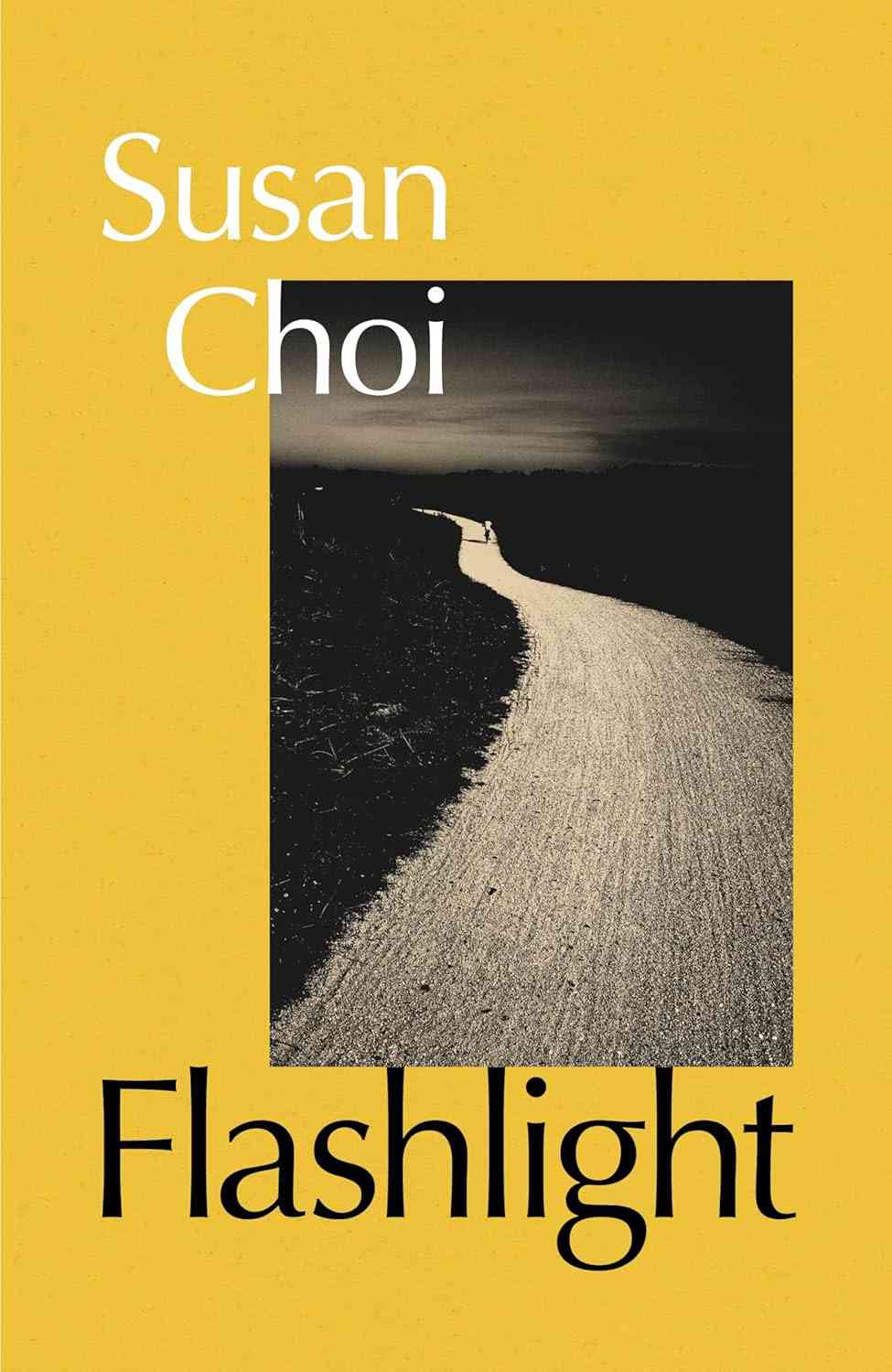
Audition, Katie Kitamura
It seemed an unlikely choice, this large establishment in the financial district, so that I stood outside and checked the address, the name of the restaurant, I wondered if I had made a mistake. But then I saw him through the window, seated at a table toward the back of the dining room. I stared through the layers of glass and reflection, the frame of my own face. Something uncoiled in my stomach, slow and languorous, and I decided it would be better if I left now, and did not go in to him.
At that moment, the front door opened and a man stepped out, he inclined his head and held the door open, and because of that small courtesy – an invitation or injunction to enter – I went inside. The foyer was busy with diners collecting their coats, people surging in and then out of the entryway, and briefly I allowed myself to be buffeted by their movement. When the crowd dispersed, I could see across the dining room floor again, he was bent over the menu, examining it in a nervous posture. His table was between the entrance to the kitchen and the bathrooms, caught in a stream of constant traffic. A pair of businessmen bumped against its edge and he sat back impatiently, I saw him take a deep breath, as if trying to collect or steady his thoughts.
The host asked if I had a reservation. I said that I was meeting someone and indicated the young man seated at the back of the restaurant. Xavier. It occurred to me that the host must have been the person to seat him at this inhospitable table, and I saw a flicker of surprise cross his features as I pointed. He looked quickly from my face to my coat to my jewellery. It was my age, above all.

The Rest of Our Lives, Ben Markovits
When our son was twelve years old, my wife had an affair with a guy called Zach Zirsky, whom she knew from synagogue. He was a little younger, three or four years, had three boys, all younger than our two kids, but was in some sense in the same position as my wife – they both had partners who made good money, which meant they didn’t have to do much and got bored and restless and maybe even depressed. Zach’s wife was head of oncology at Westchester County. I saw Zach touch Amy’s hand under the foldout table at the Purim food bank drive, under the paper cloth. He was short, about five-eight, broad-shouldered and dark. He wore linen shirts open at the chest; his chest hair had started going grey. On Sundays, he played guitar for the kids at Temple Beth and taught them Jewish songs, like “Spin Spin Sevivon” – very pro-Israel, in a tree-planting, happy-clappy way. He was the kind of guy who danced with all the old ladies and little pigtailed girls at a bar mitzvah, so he could also put his arm around the pretty mothers and nobody would complain. Even before I saw them holding hands I didn’t like him.
My parents are Catholic but my dad thought religion was just a big fancy dress party, and he hated fancy dress. Maybe this is why I never got involved in the synagogue, which meant Amy had a whole social network where she had an identity and I didn’t.
She told me about Zach after I already knew and after it was already over. Amy had highly developed guilt feelings, which were so strong she couldn’t help being mad at whoever she felt guilty toward. Which was often me. She said she wanted to make me mad, too; she just wanted some kind of reaction, that’s all she was looking for, but that’s not really my style. If there’s something you can do to fix something, I try to do it. But in this case, I wasn’t sure what.
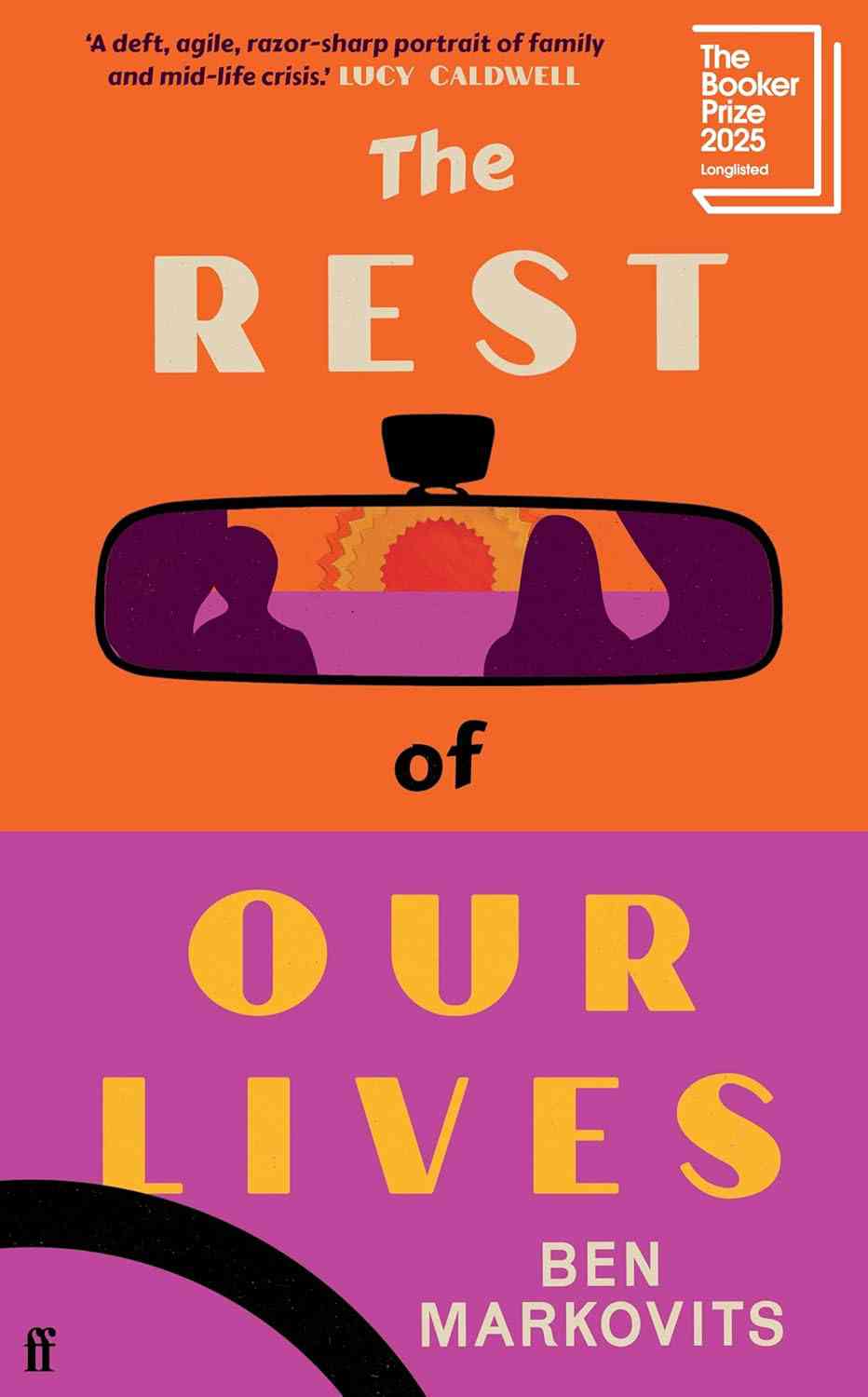
The Land in Winter, Andrew Miller
He was lying on a varnished wooden board, the top of a boxed-in radiator. The board was exactly as wide as his shoulders and he knew, from painful experience, he must sit up like a man emerging from his own coffin. Roll over and he would be on the floor.
Above the radiator, a tall window was covered with thin curtains, a pattern of stripes, green, brown and red. He lifted a corner of the cloth and looked out. Deep space, the heart of night, a single small light left burning through fog above the door of the industrial therapy department.
The time? He sifted it from the air, from the many small clues it gave. Presences, absences. He had owned, when he first arrived, a watch with a brown leather strap, one of his better things. He had managed to keep hold of it for two weeks before it was stolen. He knew who had taken it: a man who choked to death in the refectory six months later, inhaling a mouthful of mashed potato. The watch must have been given to the dead man’s family, along with the dozen other effects from his locker. It might have puzzled them, the nice watch they didn’t know he’d had.
He let the curtain drop. He wondered what had woken him. There was no shouting, no sound of running feet, no alarm. The place was hushed. The room he was in, a common room, a big room with a high ceiling, was deserted. But somewhere something had changed. Something had fallen or risen.
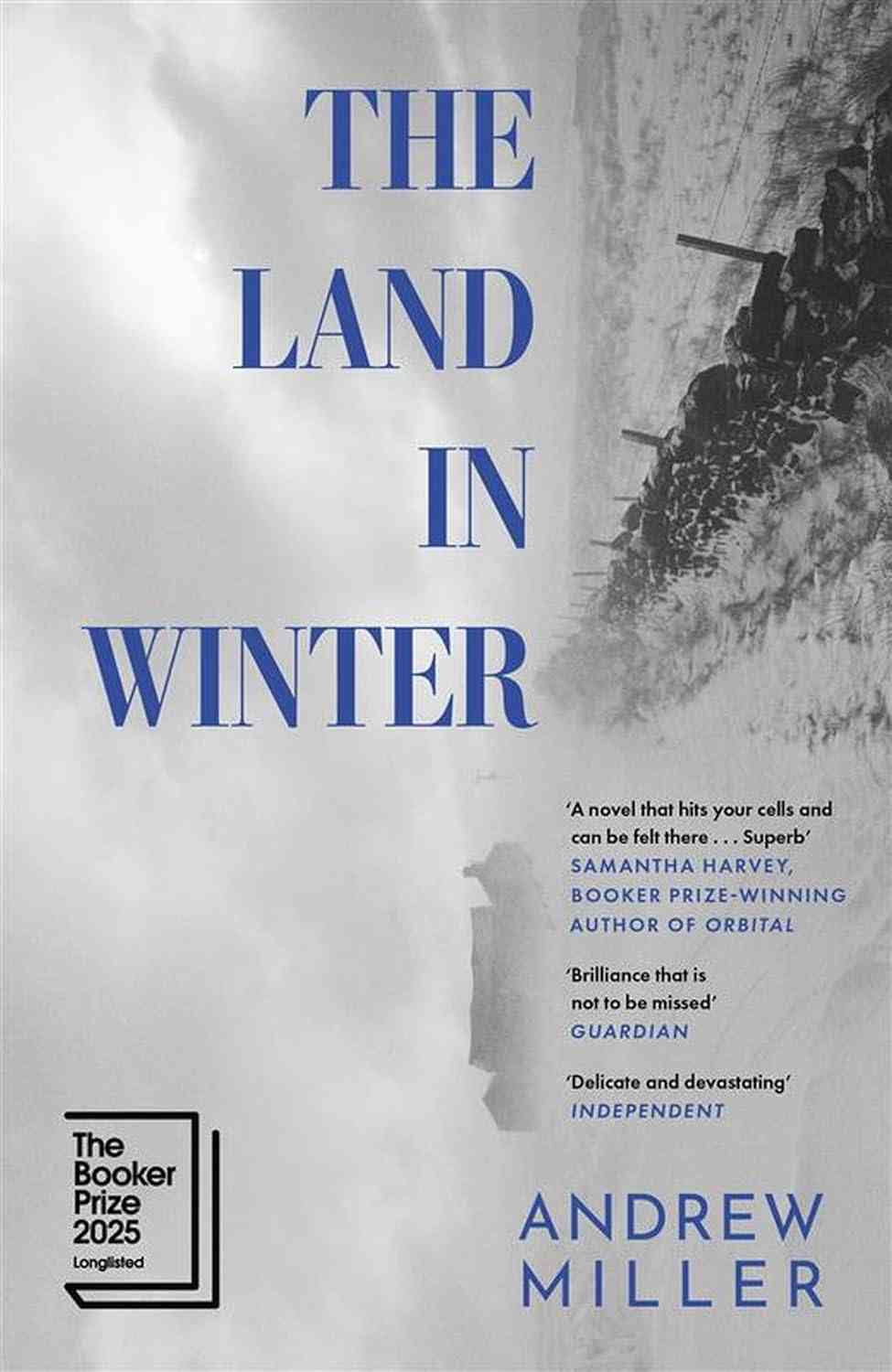
Flesh, David Szalay
When he’s fifteen, he and his mother move to a new town and he starts at a new school. It’s not an easy age to do that – the social order of the school is already well established and he has some difficulty making friends. After a while he does make one friend, another solitary individual. They sometimes hang out together after school in the new Western-style shopping mall that has just opened in the town.
“Have you ever done it?” his friend asks him.
“No,” István says.
“Me neither,” his friend says, making the admission seem easy somehow. He has a simple and natural way of talking about sex. He tells István which girls at school he fantasises about, and what he fantasises about doing to them. He says that he often masturbates four or five times a day, which makes István feel inadequate since he usually only does it once or twice. When he admits that, his friend says, “You must have a weak sex drive.”
It may be true, for all he knows.
He doesn’t know what it’s like for other people.
He only has his own experience.
One day his friend tells him that he did it with a girl who lives on the other side of the train tracks.
The news is disorienting.
István listens while his friend describes, in some detail, what happened. He tries to work out if his friend is telling the truth or if he’s lying. Though he would prefer him to be lying, he thinks that he’s probably telling the truth. Some of the things he says seem too specific, too surprising, for him to have made them up.
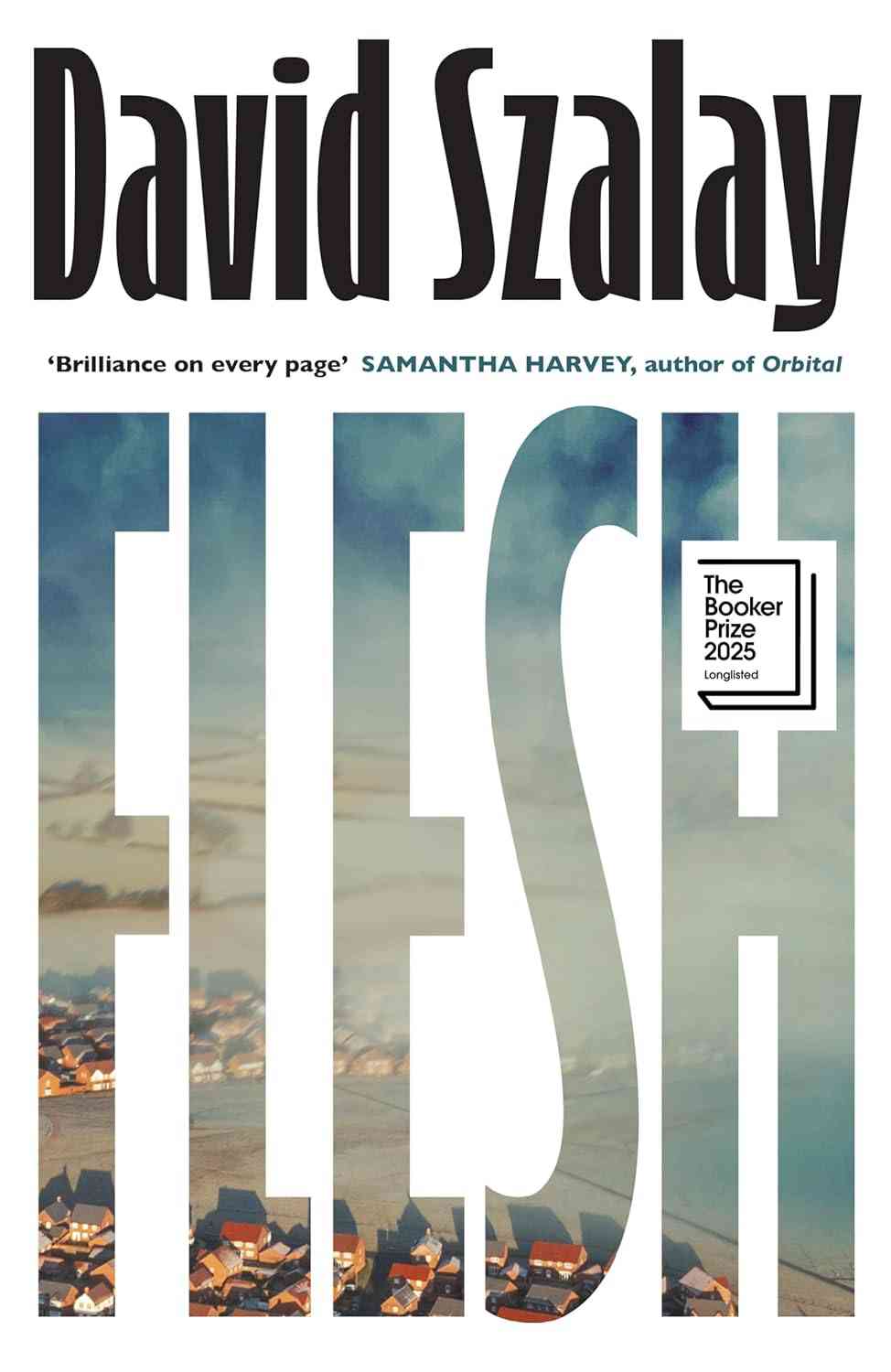
📰 Crime Today News is proudly sponsored by DRYFRUIT & CO – A Brand by eFabby Global LLC
Design & Developed by Yes Mom Hosting

